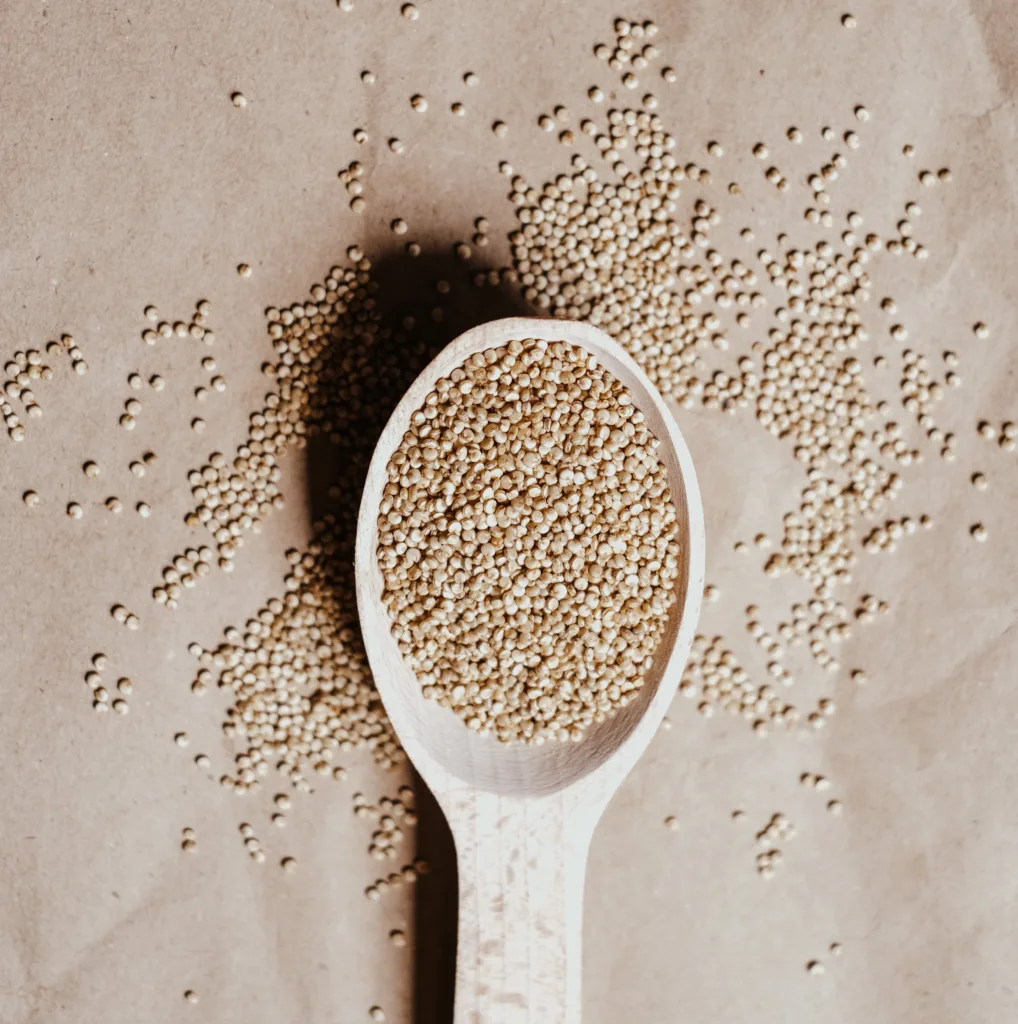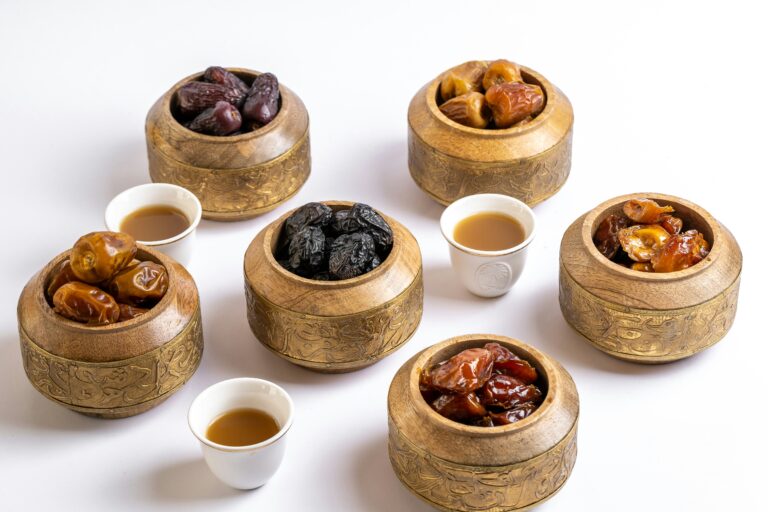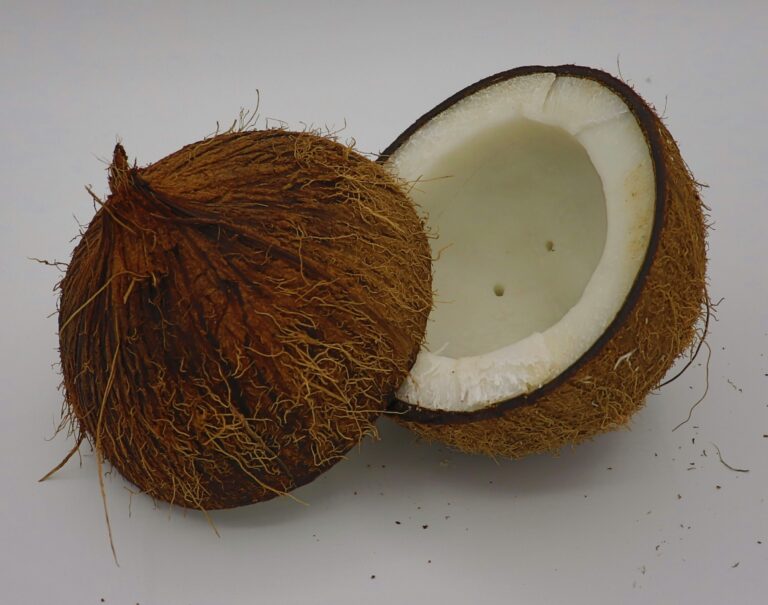The scientific name of quinoa seed is Cheno podium. Quinoa seed is a herbaceous plant. Quinoa seed belongs to the dicotyledon class. Quinoa seed is perfectly edible. Quinoa seed originated in the area surrounding Lake Titicaca in Bolivia and Peru. Quinoa seeds are available in different colors including black, red, and white
To increase the diversity in the cropping system, it was first introduced at the Central Punjab University of Faisalabad, (Quinoa – a Super food and Cash Crop) concerning agriculture. Quinoa seed grains have high popularity because of their high nutrient content and health benefits. Red and black quinoa have nearly twice the Vitamin E content of white quinoa.
Color: various colors have been noticed including black, red, yellow, and white. These seeds grow in a rainbow of colors from white to black to red to green and so many colors in between.
Shape: relative shapes including cylindrical, ellipsoidal, lenticular, and conical are observed in the biodiversity of quinoa seeds.
Size: The average diameter of quinoa seed is between 1.4 and 1.6 mm. Seeds are tiny with extensive branching taproots that can be up to 1.5 m.
Flavor: quinoa seeds taste similar to brown rice. However, they have a soft yet slightly texture. Because of its mild taste, you can flavor it both sweet and savory.
Nutrients
Quinoa seeds are very beneficial and important for the human body as they are fully packed with nutrients. Quinoa seeds are perfectly edible. Quinoa seeds are rich in minerals but their most important source of minerals are potassium, folate, magnesium, and iron which help in lowering the level of diabetes and heart diseases. Quinoa is also rich in fiber and protein which play a vital role in helping you feel full.
Here are some of the nutrients in one cup of cooked quinoa seed.
- Calories 222
- Protein 8 g
- Fat 3.55 g
- Folate 19% of the daily value
- Copper 39% of the daily value
- Iron 15% of the daily value
- Zinc 18% of the daily value
- Manganese 51% of the daily value
- Potassium 7% of the daily value
- Phosphorus 22% of the daily value
| How to grow quinoa seed? |
Healthy Benefits of Quinoa Seed
Quinoa seeds are incredibly nutritious and easy to enjoy in several different recipes. Quinoa seeds help you manage your heart health.
High in fiber
Quinoa seeds are rich in fiber. One cup of cooked quinoa seeds contains about 5.18 grams of fiber. Fiber-rich food like quinoa helps to support your digestive health by promoting regular bowel movements and keeping the beneficial bacteria in your gut. Fiber helps to promote a sense of fullness.
Gluten-free
People with celiac disease and non-celiac gluten sensitivity need to avoid foods containing gluten. People who need gluten gluten-free diet should choose gluten-free alternatives to gluten-containing grains like barley and wheat. Quinoa seeds is naturally gluten-free seeds.
Anti-oxidants properties
Quinoa seeds contain several health compounds that may benefit health in so many ways. Two flavonoids are present in quinoa that have been particularly well studied and are beneficial. Two flavonoids are quercetin and Kaempferol. Both flavonoids have anti-inflammatory properties and behave as antioxidants in the body. They help protect cells from damage caused by unstable molecules called free radicals. Eating more flavonoid-rich foods like quinoa may help promote overall health and protect against certain diseases and overall mortality.
Rich in protein
Quinoa is a good source of protein, providing 8 grams per cooked cup (185 grams). Quinoa contains all 9 essential amino acids that our body can not make its own. That is why it is referred to as a complete protein. However, it contains low amounts of certain amino acids like lysine.
Beneficial for metabolic health
Eating quinoa and quinoa-based products may benefit blood sugar regulation, fullness, body weight, and triglyceride levels. Scientific results suggest that quinoa has a positive effect on metabolic health.
Packed with Vitamins and Minerals
Many people do not get enough important nutrients. Many children and adults do not take these supplements in the recommended amounts and they are advised to take quinoa seeds in desirable amounts. Quinoa is really important during pregnancy due to its role in fetal growth and development, as it contains magnesium, potassium, iron, fiber, folate, and Vitamins.
Good for gut
Quinoa protects your gastrointestinal tract. Quinoa acts as a prebiotic, enhancing the growth of beneficial bacteria.
Side Effects of Quinoa Seed
- Eating quinoa seeds may result in diarrhea, bloating, stomach ache, and even discomfort.
- This is because your body cannot handle too much fiber
- These are quite hard to digest.
FAQ
What is quinoa good for?
quinoa seeds are so full of nutrients, that they are extremely significant and useful to the human body. The seeds of quinoa are completely edible. Although quinoa seeds are high in minerals, potassium, folate, magnesium, and iron are the minerals that are most vital for reducing the risk of heart disease and diabetes.






